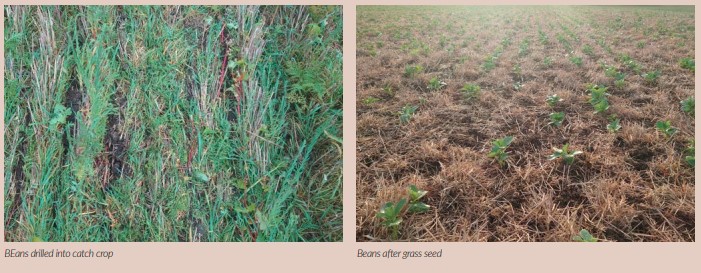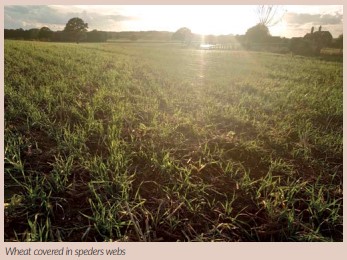
Every year you learn something new and the last two years have been tough, and we have learnt a lot! This shows in our machinery purchases over this period. We have bought a mole plough, a drain jetter, a set of rolls with paddles and a Tech Neat Outcast catch crop spreader. These are all linked as I hope they will all allow us to cope better with increasingly wet autumns.
Our heavy clay soils are always the fields that cause us the most issues in No Till. We have managed to improve the soil structure over the years, but a slow permeable clay soil will be a slow permeable clay soil, no matter how good the soil structure on the top is. We needed a method to get the water away from the surface faster, with low disturbance and benefits which last longer than 2 months, unlike subsoiling. This led us to purchase a mole plough in February 2020 and it seems to have been very successful this autumn. Mole ploughing is not that common in Kent, in this sense we are behind our neighbours in Essex, I will give them that one thing!!
The Drain Jetter was used extensively last winter, we found a lot of drains we did not know existed and improved a lot of existing ones that seemed to be running OK, but a lot of silt still came out of them while being cleaned. Our new set of rolls were bought with paddles just to help close the seed slot in certain situations. These situations were normally in the spring or after grass. We have modified the paddles, so they are not aggressive and do not bulldoze residue. We have also learnt this year that growing winter beans after herbage seed crops is safer than growing spring beans (see beans after grass). The winter beans are not affected by the grass pests as much as spring beans are, due to the pests like leatherjackets not feeding in the autumn. We have had excellent establishment this autumn.

The Outcast Spreader was bought second-hand this summer and I used it to spread catch crops into standing crops this summer, some were successful while some failed. The lessons learnt for next year is that we need to increase seeds per spread, add some slug pellets, and narrow down the species spread, as some species seemed to be a waste of time. Catch crops I believe are our missing link in terms of having constant living roots. One big advantage is that catch crops make drilling later in the season far less risky compared to planting into bare stubble. (See catch crop picture)

We are also involved in a trial this autumn with Southern Water as they are looking to reduce the amount of Propyzamide in the local watercourses. The two methods we are trialling are catch cropping pre-drilling to smother weeds and reduce run off (the main source of propyzamide) and growing oats with the winter beans with the aim that the oats will reduce the weed burden in the beans. We need to learn how to reduce this type of pollution, otherwise it will be another herbicide we lose. It will be interesting to see the results.
This autumn the crops look in good order with lots of potential for next harvest, the dry autumn has been a pleasant change! Wishing everyone a Merry Christmas.